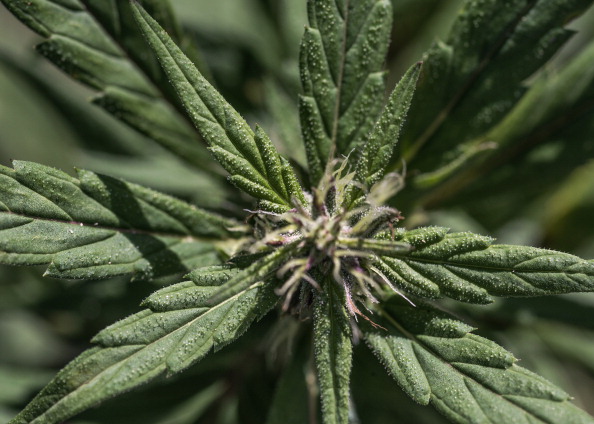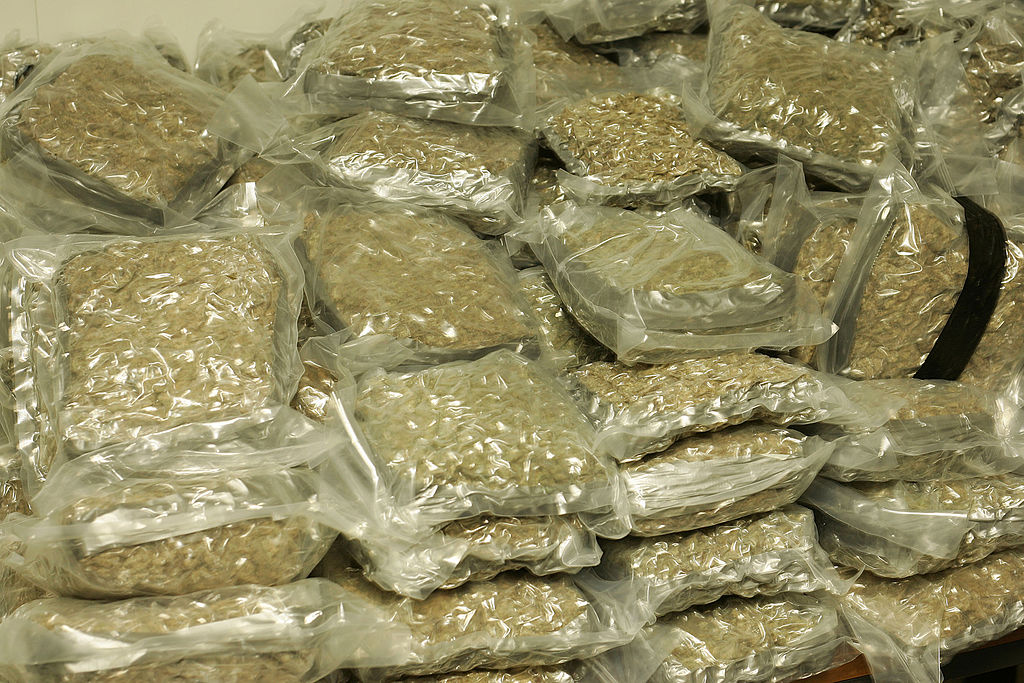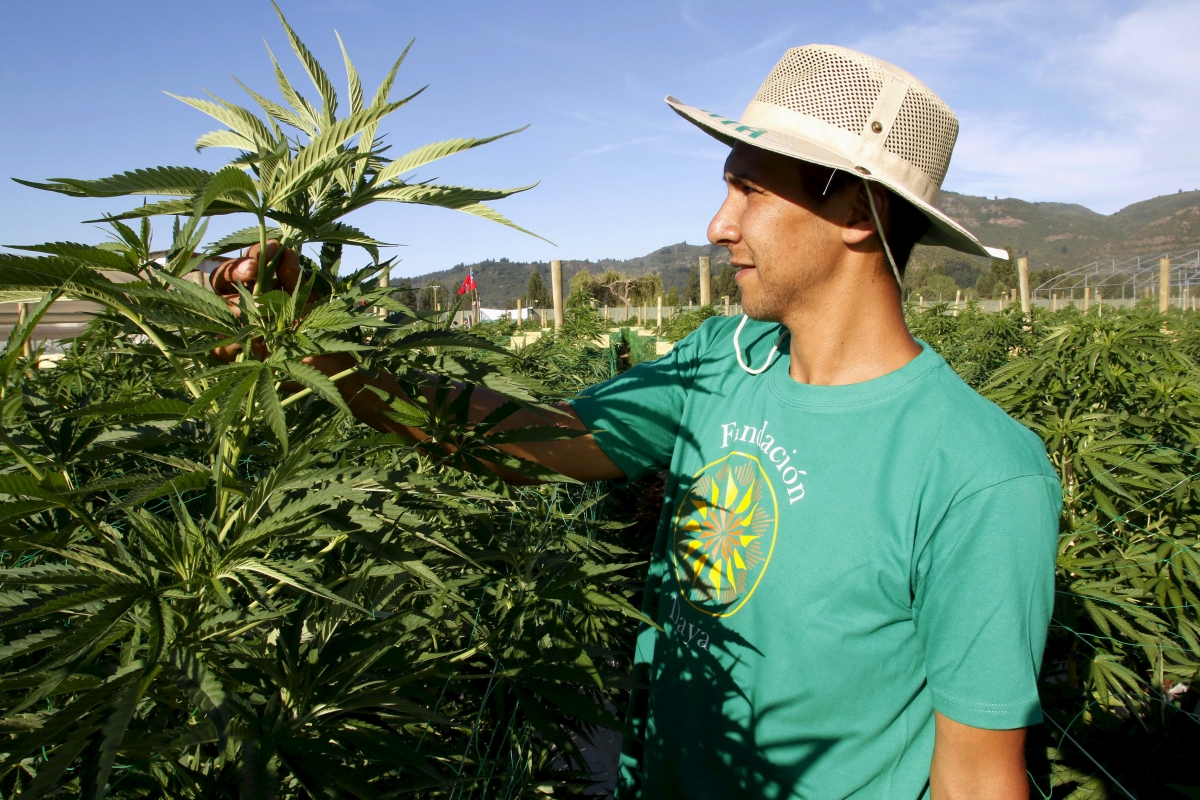 Health arguments for and against the legalisation of cannabis are numerous. John Greim/LightRocket/Getty
Health arguments for and against the legalisation of cannabis are numerous. John Greim/LightRocket/GettyIf the law ended up being voted in, consuming cannabis would still remain forbidden in public places, possession would be limited to 15g at home and 5g outdoors and people would not be able to cultivate more than five plants.
Legalising cannabis has been a debate that has taken centre stage in recent years, one that many nations across the globe have started to take on.
In April 2016, debates at the UN General Assembly Special Session on Drugs highlighted the necessity to move away from a repressive legislative approach against cannabis consumption and possession, with some governments calling for more 'humane solutions'.
However, there is an important rift between countries on the topic, with many disagreeing with the view that legalisation or decriminalisation of cannabis use should be promoted. And so the final agreement at the meeting maintains the prohibitionist policies banning narcotics use – cannabis included.
To legalise or to decriminalise?
Decriminalising is not the same thing as legalising. In Europe, many countries have approved laws to decriminalise the use of cannabis. Decriminalisation does not mean that people will be able to take drugs without facing any consequences. However, it means that possessing or consuming small amounts does not land the user in prison. They can still be fined or receive other types of penalties. Drug trafficking is still considered criminal.Legalisation in contrast mans that people do not face any penalty and any 'business' activities linked to cannabis are made legal – retailers, producers and transporters do not face any charge, unlike in the context of decriminalisation.

But it is on the health front perhaps that divisions between advocates and opponents of cannabis legalisation are the most important.
The health arguments against legalisation
The World Health Organisation emphasises that prolonged heavy use of marijuana may affect cognitive development and cause cognitive impairment and mental health problems such as schizophrenia, in some users. It leads to airway injury, lung inflammation, and impaired pulmonary defence. Diseases such as lung and throat cancer are have regularly been linked with cannabis use. Cannabis use has been shown to increase the risk of car accidents. Opponents of legalisation often cite these studies to warn of the health dangers associated with the drug, reminding those in favour that the UN's goal is to reach a drug-free society.
An additional health danger associated with marijuana use is known as the 'gateway phenomenon'. Cannabis is frequently described as a stepping stone that bridges the gap between cigarette and alcohol use and the use of harder drugs. There are concerns legalising would increase this phenomenon. However, a report published by the Institute of Economic and Social Research reveals this argument has often been exaggerated.
Health arguments in favour of legalisation
Those in favour of legalisation often like to remind others that marijuana is probably less dangerous and less addictive than many legal drugs, like alcohol and tobacco. According to charity DrugWise, we do not know exactly how many drug-related deaths there are in the UK. However, estimates suggest that in 2011, there were 79,100 deaths related to tobacco smoking and 8,748 alcohol-related deaths. In contrast, the National Program on Substance abuse deaths 'only' records six deaths in England in 2011 where cannabis alone was implicated.
Finally, legalising could also facilitate access to therapeutic cannabis. Research suggests that marijuana may be helpful to relieve nausea during chemotherapy treatment, reduce inflammatory pain and pain in neurological disorders and autoimmune diseases. Legalising in countries where therapeutic uses of cannabis are still not allowed would give patients the possibility to access it.
0 Response to "Italy could be about to legalise marijuana – here are health arguments for and against"
Post a Comment